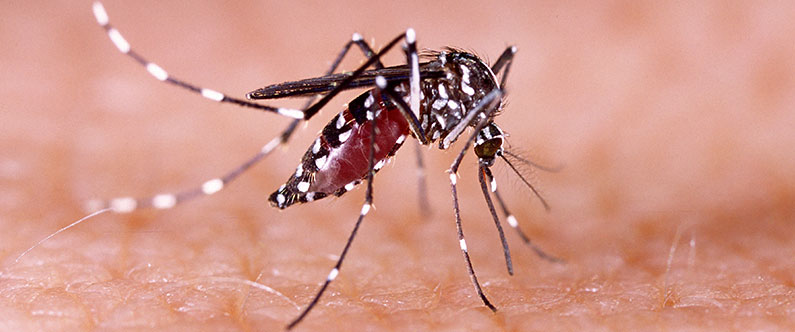Public has limited knowledge of Zika virus, WCM-Q research finds
 The Zika virus is not considered to be a direct threat to the Gulf at present, but the region is home to the Aedes aegypti mosquito, one of the primary species responsible for the transmission of Zika virus.
The Zika virus is not considered to be a direct threat to the Gulf at present, but the region is home to the Aedes aegypti mosquito, one of the primary species responsible for the transmission of Zika virus.
Researchers at Weill Cornell Medicine-Qatar (WCM-Q) found that two-thirds of people in Qatar surveyed about the Zika virus had poor knowledge of the disease.
The Zika virus is generally not harmful to most people but poses a more serious risk to pregnant women as it can cause grave medical complications such as the birth defect microcephaly, characterized by an abnormally small head in newborn babies.

The Zika virus is not currently judged to be a direct threat to the Gulf region currently. It is, however, present in Brazil, Argentina, Florida in the US and Singapore – all areas with direct flights to Doha – which marginally increases the likelihood of importation of the disease. Furthermore, the region is home to the Aedes aegypti mosquito, one of the primary species responsible for the transmission of Zika virus. No vaccine exists for Zika virus, which can also be transmitted by sexual intercourse and blood transfusions.
The research team of WCM-Q’s Institute for Population Health (IPH) surveyed 446 people in Qatar from GCC or other Middle Eastern countries and asked a range of questions about Zika. The results showed that 66 percent of participants had ‘poor’ knowledge of Zika, defined as not knowing that it is transmitted by mosquitos and/or that anyone can get the virus and/or that there is currently no vaccine. Twenty-seven percent had ‘basic’ knowledge of Zika, defined as knowing that there is currently no vaccine, that the disease is transmitted by mosquitos and that anyone can get it.
Just seven percent of respondents were found to have ‘broad’ knowledge, defined as having ‘basic’ knowledge and additionally knowing that it can be transmitted through sexual intercourse, blood transfusions and from mother to baby during pregnancy, and that if a pregnant woman has Zika virus there are health risks for her baby.
Lead author of the study Dr. Sohaila Cheema, Director of the Institute for Population Health and Assistant Professor of Healthcare Policy and Research at WCM-Q, said: “Our aim with this study was not to make people worried about Zika virus becoming prevalent in Qatar, because the risk of that happening is very low, although future cases are indeed possible because of Doha’s position as a global transport hub. Rather, our aim was to look at an emergent public health issue that received widespread coverage in the media and discover whether the general public gained useful practical information that they could use to protect their own health.
“The results are slightly concerning for us because it appears that although the Zika virus was extensively covered by international media, this does not appear to have resulted in people gaining anything more than a superficial understanding of the disease and the nature of the risk it poses.”
The article, entitled Knowledge and perceptions about Zika virus in a Middle East country, has been published in the prestigious international health journal BMC Infectious Diseases. Other contributors to the study included Dr. Javaid Sheikh, Dean of WCM-Q, and Dr. Ravinder Mamtani, Professor of Healthcare Policy and Research in WCM-Q’s Institute for Population Health. WCM-Q collaborated on the study with researchers at New York Medical College in Valhalla, New York, Qatar Computing Research Institute, and the European Institute of Oncology in Milan.
Dr. Ravinder Mamtani, said: “One of the key ways in which we try to mitigate public health risks is by the dissemination of useful practical information and advice, and this study has demonstrated that the mainstream international media is not a reliable or effective tool for doing so.
“The Zika virus is a serious emerging infectious disease that can cause devastating health issues. Because global air travel means we are well-connected to areas of the world where Zika virus is prevalent, it is important that we understand the disease. Therefore, we concluded that an educational program about Zika virus would be valuable as a preventive measure against the spread of the disease in the Gulf region, especially for people traveling to afflicted regions.”